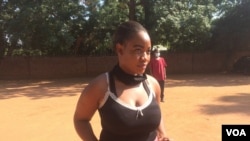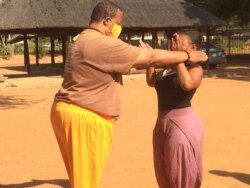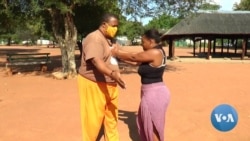Lawmakers in Botswana recently set up a committee to address the soaring rate of reported rape cases in the Southern African country, and plan to establish a sex offender registry. However, activists say those actions don't go far enough.
Singer Refilwe Mooki took self-defense lessons after she was raped in 2017. Last year, her emotional wound was reopened when her little sister was attacked.
"Just after my little sister was raped, it took me back there. I felt it's a curse or something. At the same time, I said, 'Let me do something positive out of this,' " Mooki said.
Mooki leads a Say No to Rape campaign in Botswana, where reported rape cases have jumped in the last few years. Authorities contend that pandemic restrictions have increased gender-based violence, and this year they announced the offender registry to address the problem.
But activists like Desmond Lunga, of Men and Boys Against GBV, say they need more than policies — they need action.
"We have had inquiries in the past. There have been findings, but there has never been implementation of those findings," he said. "Botswana has signed and ratified some legal instruments, but they are not implementing. So, that is the challenge that we have as a country."
Botswana's rape survivors say police don't take their ordeals seriously, and cases often don't make it to court.
To address those problems, authorities say they are piloting gender-based violence units at police stations and special courts to fast-track their cases.
That raises hope that the voices of survivors like Mooki can finally be heard.







